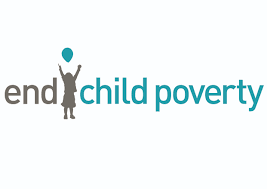Campaigners have repeated their calls for the Scottish Government to provide an urgent cash boost to low income families struggling amid the pandemic.
It comes as a new Scottish Government report detailing progress against Scotland’s child poverty targets – including cutting child poverty to less than 10% – reveals a worrying outlook for families.
The report highlights how the Covid-19 pandemic has created the perfect storm for families living on low incomes, pulling them into hardship and plunging many into even deeper poverty. It comes at a time when there is clear evidence that women – particularly lone mothers – and minority ethnic families face particularly high levels of poverty and have been disproportionately impacted by the crisis. This has increased the strain on families who were struggling to stay afloat amid a rising tide of poverty, even before the pandemic.
Members of the End Child Poverty coalition in Scotland have welcomed strong political focus to date on tackling child poverty in Scotland, including the commitment to the Scottish Child Payment, which will provide £10 per week per child to all eligible families. However, the Scottish Government’s roll out of the payment has been delayed and, as was confirmed today, won’t reach families until next year.
The coalition says today’s progress report reinforces the need for the Scottish Government to bring forward urgent interim financial assistance to support families through the coming months, particularly as the UK Government’s Job Retention Scheme winds down.
Peter Kelly, Director of the Poverty Alliance, said:
“Today’s Scottish Government child poverty update makes clear we face a defining moment in tackling poverty in Scotland.
Almost 1 in 4 children in Scotland were growing up in the grip of poverty pre-pandemic. With Covid-19 disproportionately impacting people already most likely to be in poverty – like lone parents, disabled people, and BAME families – the pandemic has swollen the waves of an already-rising tide of hardship in our communities.
The cross-party will for ending child poverty in Scotland is evident, but we need that will turned into more urgent action. Today’s confirmation that the Scottish Child Payment will be delivered for under-6s by February is welcome. But for parents struggling to put food on the table in August, February seems like a very long time away. They need to see measures brought forward now to bridge that gap, with direct and urgent financial support.”
Martin Canavan, Head of Policy and Participation at Aberlour, on behalf of the End Child Poverty members in Scotland said:
“We are urging the Scottish Government to act quickly to protect children from poverty by bridging the gap until the initial roll out of the Scottish Child Payment next year. Low income families need direct and immediate financial support, and this should be at least equivalent in value to the £10 per week per child payment for all eligible families.
Many families are facing desperate situations; we know there are over 30,000 more families with children who are now claiming Universal Credit in Scotland since Covid-19 hit. Low-paid women and their children, who were already at particular risk of poverty, have been put at even greater risk as a result of being disproportionately impacted by unemployment and enforced reduction of hours. The last five months will have caused yet more stress to those already walking the tightest of financial tightropes.
There has been much political discussion and debate about the wider economic impact of the pandemic and how we can avert a financial catastrophe. But many families are already deep in this crisis and feel like there’s just no way out.
The Scottish Government must prioritise the lives of children growing up in poverty and ensure families receive the financial support they urgently need.”
Jo*, a Mum from Irvine with two children aged 14 and 5, who is being supported by End Child Poverty member, Children 1st’s Money Advice Team said:
“An additional payment would be a huge help and relief for many families during this pandemic. For us it would help to buy in that extra food as the kids are eating all the time and help with electricity. I’d also maybe spend it on arts and crafts or fun activities for the kids. Some families like ours, don’t get the opportunity to buy that sort of thing as we’re on a low income.”


Enter your email address to receive regular e-updates about our work. If at any time you want to stop receiving these, simply contact us. We’ll keep your details safe and won’t share them with any other organisations for their marketing purposes. For full details see our Privacy Policy.